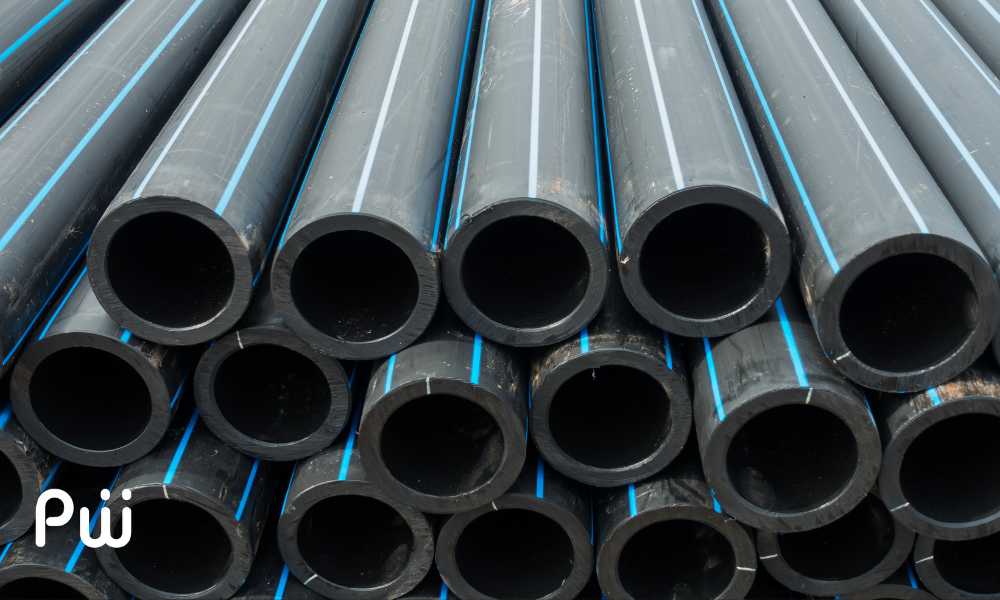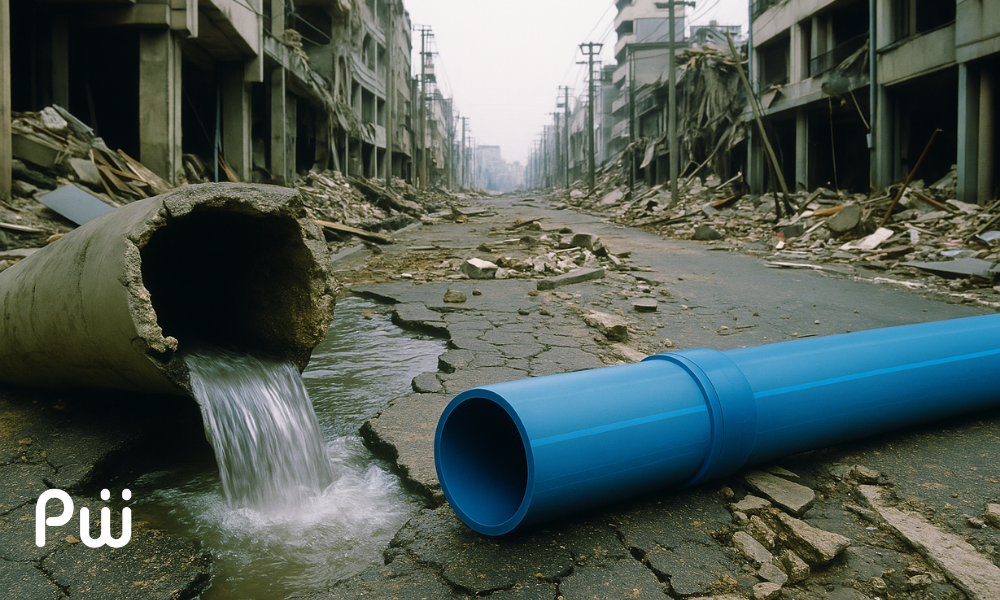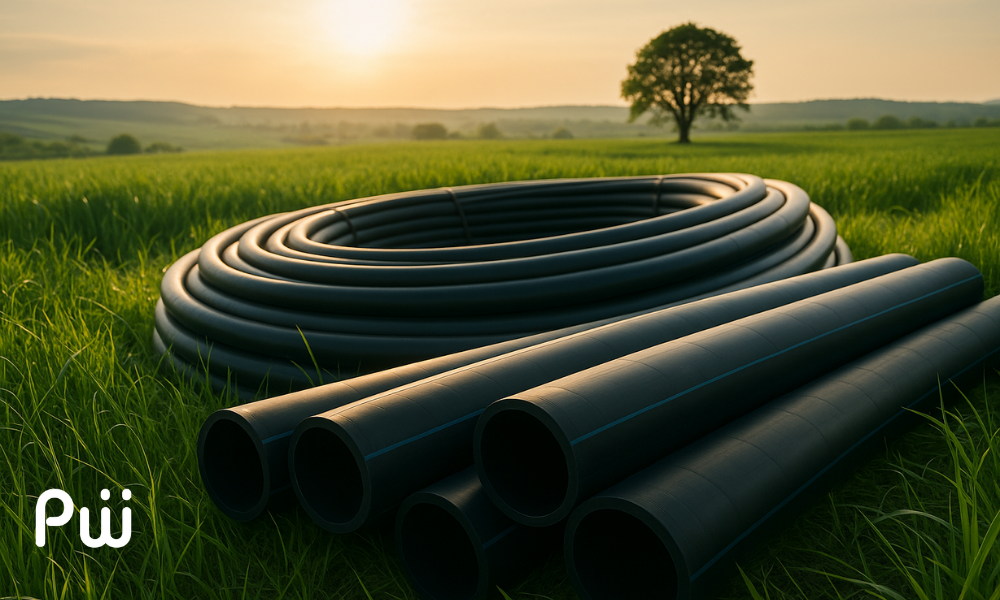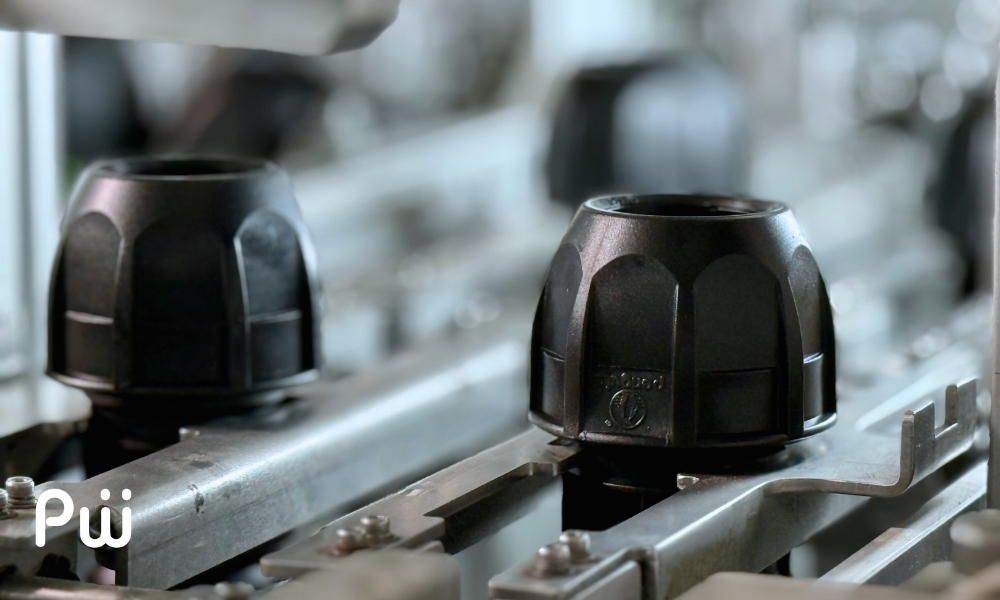Water loss is one of the biggest challenges in modern water management. Across Malaysia, non-revenue water (NRW) continues to rise due to leaking or corroded pipelines made from traditional materials like metal or PVC. These systems often fail under pressure, leading to costly repairs and unnecessary waste.
High-Density Polyethylene (HDPE) pipes have changed the game. Known for their flexibility, strength, and corrosion resistance, HDPE systems are engineered for long-term reliability — even in the most demanding environments.

Why HDPE Performs Better
HDPE pipes are built to flex, not break. They can absorb ground movement and vibration without cracking, making them ideal for underground and high-pressure applications. Their smooth inner walls reduce friction loss, maintain flow efficiency, and lower pumping energy over decades of service.
Unlike metal, HDPE doesn’t rust or corrode, and its fusion-welded joints create a seamless, leak-free network. Each welded connection is as strong as the pipe itself, eliminating weak points and significantly extending system lifespan.

The Kobe Earthquake: A Turning Point for Pipeline Design
When the Great Hanshin-Awaji (Kobe) Earthquake struck Japan in 1995, it devastated the country’s infrastructure. Traditional pipelines made from rigid materials ruptured under ground deformation. However, HDPE water pipes remained intact, continuing to deliver clean water where other systems failed.
Researchers later confirmed that HDPE’s flexibility allowed it to withstand violent shaking and soil displacement without fracturing. The results were so convincing that many Japanese municipalities began switching to HDPE for both water and gas distribution networks. This event became a global case study in earthquake-resistant pipeline design, showcasing HDPE’s unmatched resilience.

Sustainable and Future-Ready
Beyond strength, HDPE’s long lifespan, often exceeding 50 years. Makes it one of the most sustainable choices for modern infrastructure. It requires fewer replacements, produces lower carbon emissions, and is fully recyclable at end-of-life.
Conclusion
At Polyware Sdn Bhd, our HDPE pipes and fittings are manufactured in strict accordance with international standards to ensure consistent performance and leak-free operation. All HDPE pipes are produced in compliance with MS 1058: Part 2 and ISO 4427-2, while our compression fittings conform to ISO 17885, and heat fusion fittings meet the EN 12201-3 standard. Each product undergoes rigorous quality control and pressure testing to meet the highest expectations of sustainable, efficient, and long-lasting water infrastructure.
You may explore our full list of certifications: https://polyware.com.my/our-certifications/
Data Compilation by
Polyware Team

By purchasing our Polyware HDPE products, you are committing to making a contribution to environmental protection. At the same time, you are ensuring a better world environment for future generations.
